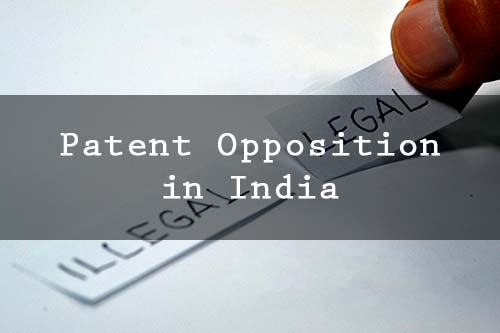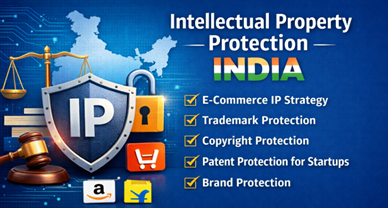Patent Prosecution in India- Post-grant Opposition
According to section 25(2), at any time after granting of a patent, but before the expiry of a period of one year from the date of publication of the grant of a patent, any person interested may give a notice of opposition to the Controller in a prescribed manner on any of the grounds mentioned under sub-section 2 of section 25 of the patents act, 1970.

The opponent files a post-grant opposition to the Controller. The opponent needs to furnish a copy of the statement and evidence if any to the patentee. The patentee may argue and file a reply statement and evidence if any within two months of receiving the post-grant opposition notice. If the patentee does not contest or file any reply statement, the controller issues a notice of the revocation of the patent.
The reply statement must contain an explanation against all grounds upon which the opposition is contested, and a copy of the same is delivered to the opponent. The opponent files a reply statement strictly in line with the evidence filed by the patentee in its reply statement, and a copy is provided to the patentee by the opponent.
The patentee and the opponent may file new evidence with the permission of the controller but before the scheduling of the hearing date or at least 5 days before the day of hearing (at a later stage).
The Controller forms an opposition board of three members, with at least one chairman to examine opposition documents. The opposition board submits a report based on grounds of opposition, documents, and evidence submitted by the patentee and the opponent, and sends a copy of the report to the patentee and opponent within three months.
After receiving a report from the opposition board, the Controller schedule a hearing date for post-grant opposition. The patentee and the opponent are informed at least 10 days prior to the hearing date. The patentee and the opponent inform the Controller by a notice along with a prescribed fee if they wish to be heard. The controller, after considering the opposition board, may give a decision to revoke the patent or may order amendments in the patent or refuse the opposition after hearing or without hearing (if neither of them desires to be heard) the patentee and the opponent.
Section 25_Opposition to the patent. (2) At any time after the grant of patent but before the expiry of a period of one year from the date of publication of the grant of a patent, any person interested may give notice of opposition to the Controller in the prescribed manner on any of the following grounds, namely:—
(a) that the patentee or the person under or through whom he claims, wrongfully obtained the invention or any part thereof from him or from a person under or through whom he claims;
(b) that the invention so far as claimed in any claim of the complete specification has been published before the priority date of the claim—
(i) in any specification filed in pursuance of an application for a patent made in India on or after the 1st day of January 1912; or
(ii) in India or elsewhere, in any other document:
Provided that the ground specified in sub-clause (ii) shall not be available where such publication does not constitute an anticipation of the invention by virtue of sub-section (2) or sub-section (3) of section 29;
(c) that the invention so far as claimed in any claim of the complete specification is claimed in a claim of a complete specification published on or after the priority date of the claim of the patentee and filed in pursuance of an application for a patent in India, being a claim of which the priority date is earlier than that of the claim of the patentee;
(d) that the invention so far as claimed in any claim of the complete specification was publicly known or publicly used in India before the priority date of that claim.
(e) that the invention so far as claimed in any claim of the complete specification is obvious and clearly does not involve any inventive step, having regard to the matter published as mentioned in clause (b) or having regard to what was used in India before the priority date of the claim;
(f) that the subject of any claim of the complete specification is not an invention within the meaning of this Act or is not patentable under this Act;
(g) that the complete specification does not sufficiently and clearly describe the invention or the method by which it is to be performed;
(h) that the patentee has failed to disclose to the Controller the information required by section 8 or has furnished the information which in any material particular was false to his knowledge;
(i) that in the case of a patent granted on a convention application, the application for the patent was not made within twelve months from the date of the first application for protection for the invention made in a convention country or in India by the patentee or a person from whom he derives title;
(j) that the complete specification does not disclose or wrongly mentions the source and geographical origin of biological material used for the invention;
(k) that the invention so far as claimed in any claim of the complete specification was anticipated having regard to the knowledge, oral or otherwise, available within any local or indigenous community in India or elsewhere, but on no other ground.


